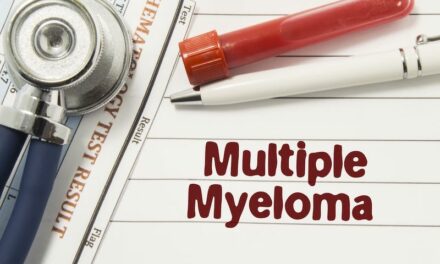Lucid Diagnostics, a commercial-stage, cancer prevention medical diagnostics company, announced that its CAP-accredited, CLIA-certified laboratory, LucidDx Labs, has launched the next generation of the EsoGuard Esophageal DNA test for the detection of esophageal precancer, having demonstrated enhanced assay performance and lower costs in extensive validation studies.
All commercial and research samples received by the laboratory will now be processed using the EsoGuard 2.0 assay.
“The launch of EsoGuard 2.0 is a seminal milestone for our company and the culmination of over a year of meticulous R&D work by our Chief Scientific Officer, Suman Verma, MD, PhD, and her dedicated and talented team,” says Lishan Aklog, MD, Lucid’s Chairman & Chief Executive Officer. “EsoGuard had previously demonstrated unprecedented cancer and precancer detection results, including detecting 100 percent of esophageal cancers and over 80 percent of precancers in a recent study from the National Cancer Institute-funded BETRNet consortium. EsoGuard 2.0 improves upon EsoGuard 1.0’s already outstanding performance in multiple respects, including by enhancing DNA yield, streamlining down-stream processes that incorporate advanced molecular techniques and more efficient bioinformatics, and enabling higher-throughput testing. These improvements also lower the per-sample costs of the assay, which we expect to decrease even further in the coming months when we upgrade our NGS-sequencing platform to a higher-throughput model to accommodate increased EsoGuard testing volume. We appreciate the critical input of Sandy Markowitz, M.D., Ph.D., and his colleagues at Case Western Reserve University, the inventors of EsoGuard, in helping us reach this milestone.”
The results of the analytical validation studies of the EsoGuard assay, culminating in EsoGuard 2.0, have been accepted for presentation at the upcoming Association of Molecular Pathology Annual Meeting (AMP 2023).
The EsoGuard assay involves first extracting DNA from esophageal cells collected by the EsoCheck Cell Collection Device. The DNA then undergoes bisulfite conversion, which tags sites which are not methylated. Two genes, VIM and CCNA1, with 31 methylation sites that correlate with esophageal precancer and cancer, are amplified using polymerase chain reaction (“PCR”) techniques and then sequenced using next-generation sequencing (“NGS”) techniques.
Advanced bioinformatics software analyzes the DNA sequence data and determines the proportion of the 31 target sites which are methylated, returning a positive or negative EsoGuard result. The original version of the assay used a singleplex technique, which required the DNA to be split and separately processed for each gene. EsoGuard 2.0 uses multiplexing which allows both genes to be interrogated on a single DNA sample. This breakthrough allows the laboratory to run the assay three times and call positive and negative results by consensus, blunting stochastic noise for low positive samples near the cutoff.
The next-generation assay underwent rigorous analytical and clinical validation studies, including head-to-head comparisons of multiplexed triplicate consensus versus singleplex techniques, consistent with CLIA standards, the company says. Clinical validation analysis included samples from the ESOGUARD-BE-1 study and demonstrated improved sensitivity and specificity.
Further reading: New Study Shows Efficacy of Castle Biosciences Barrett’s Esophagus Test





